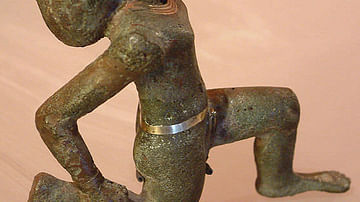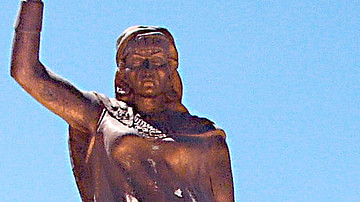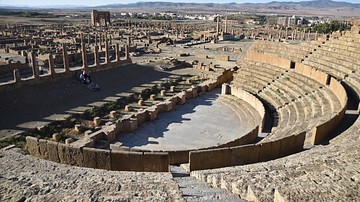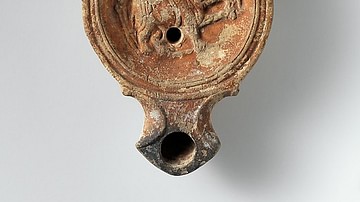Search
Did you mean: Berbers?
Summary 
Loading AI-generated summary based on World History Encyclopedia articles ...
Search Results

Video
Berber Empires: Zirids, Almoravids and Almohads DOCUMENTARY
The Kings and Generals animated historical documentary series on the ancient civilizations continues with a video on the Berbers. In the first history video we talked about the ancient origins of the North African civilization (https://youtu.be/qMv9Gyc08P8...

Image
North Africa After the Berber Revolt (739-743 CE)
Northwest Africa after 743 CE, when the Umayyad Caliphate had been overthrown in the region by the Berber Revolt of 739 - 743 CE.

Definition
Berbers
The Berbers have occupied North Africa, specifically the Maghreb, since the beginning of recorded history and until the Islamic conquests of the 8th century CE constituted the dominant ethnic group in the Saharan region. Modern Berber speakers...

Article
North Africa During the Classical Period
Phoenician traders arrived on the North African coast around 900 B.C. and established Carthage (in present-day Tunisia) around 800 B.C. By the sixth century B.C., a Phoenician presence existed at Tipasa (east of Cherchell in Algeria). From...

Article
Libyan' Inscriptions in Numidia and Mauretania
When the Numidian king Massinissa (c.241-148) died, the people of Dougga (or: Thugga) decided to build a monument in his honour. A bilingual inscription (RIL 2, KAI 101) says the building was erected in the tenth reign year of his successor...

Definition
Mauretania
Mauretania was an ancient kingdom in northwest Africa, encompassing regions of modern-day Morocco and Algeria. Although it shares a name with the modern country of Mauritania, they do not overlap. Ancient Mauretania was named after the Mauri...

Definition
Kahina
Kahina (7th century CE) was a Berber (Imazighen) warrior-queen and seer who led her people against the Arab Invasion of North Africa in the 7th century CE. She is also known as al-Kahina, Dihya al-Kahina, Dahlia, Daya, and Dahia-al-Kahina...

Article
The Splendours of Roman Algeria
Algeria, Africa's largest country, stretches from the Mediterranean coastline to the Saharan desert interior. The country has some of the finest and most diverse Roman sites, including Timgad and Djémila, both well-preserved and UNESCO-listed...

Article
Roman Expeditions in Sub-Saharan Africa
Sub-Saharan Africa was explored by Roman expeditions between 19 BCE - 90 CE, most likely in an effort to locate the sources of valuable trade goods and establish routes to bring them to the seaports on the coast of North Africa, thereby minimizing...

Definition
Sabratha
Sabratha was an ancient port city on the coast of North Africa (in modern-day Libya). The site was originally inhabited by the indigenous Berber Zwagha tribe in the 8th century BCE (according to the 11th-century CE historian al-Bakari) who...